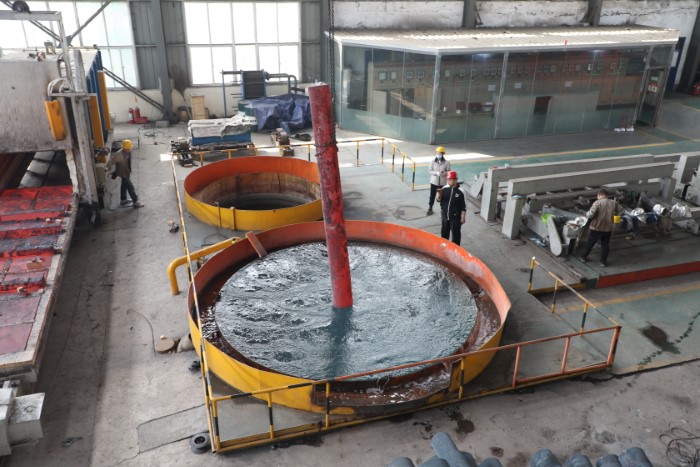Choosing a suitable quenching medium is an important step in the heat treatment process of forgings. The selection of quenching medium depends on the following factors:
Material type: The selection of quenching medium varies for different materials. Generally speaking, carbon steel can use water, oil, or polymers as quenching media, while high alloy steel may require faster media such as salt bath or gas quenching. This is because different materials have different phase transition temperature ranges and thermal conductivity energies, requiring different cooling rates.
Part size and shape: Large parts usually require a slower cooling rate to avoid excessive internal stress, which can cause cracks or deformation. Therefore, for large parts, slower cooling media such as oil can be chosen. Small and slender parts may require a faster cooling rate to obtain the required hardness, and rapid cooling media such as water or salt baths can be considered at this time.
Required hardness: The cooling rate of the quenching medium directly affects the final hardness. A faster cooling rate can produce higher hardness, while a slower cooling rate can lead to lower hardness. Therefore, when determining the required hardness, it is necessary to select the corresponding quenching medium.
Production efficiency and cost: Different quenching media have different production efficiency and cost. For example, water as a quenching medium has a fast cooling rate, but in some cases it may cause deformation or cracking of the parts. Oil as a quenching medium has a slower cooling rate, but can provide better surface quality and lower deformation risk for parts. Media such as salt baths and gas quenching have higher production efficiency but higher costs. Therefore, when selecting quenching media, it is necessary to comprehensively consider production efficiency and cost factors.
In summary, selecting a suitable quenching medium requires comprehensive consideration of multiple factors such as material type, part size and shape, required hardness, production efficiency, and cost. In practical applications, it is often necessary to conduct experiments and optimization to find the most suitable quenching medium for specific application requirements.
Post time: Nov-13-2023





